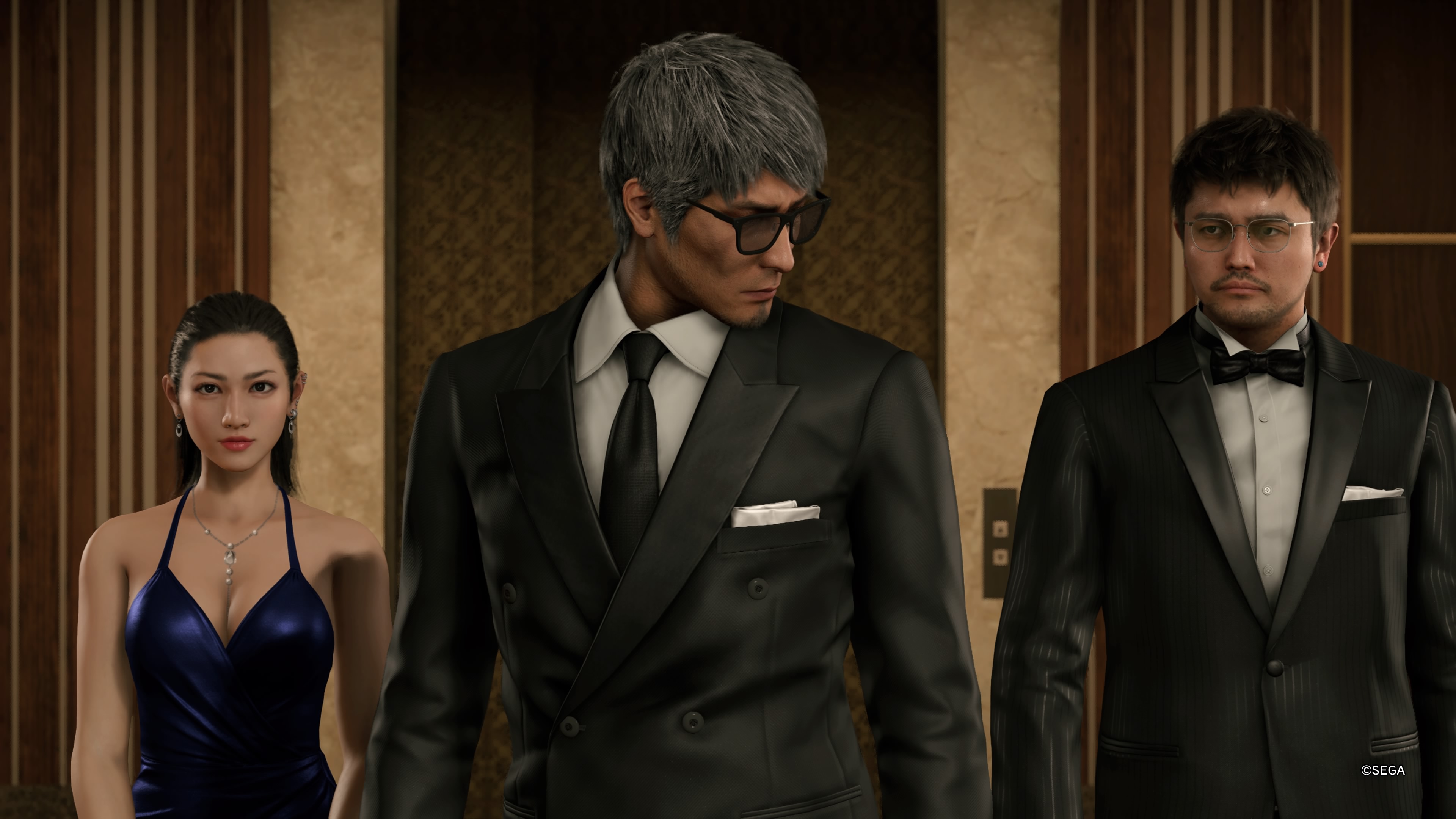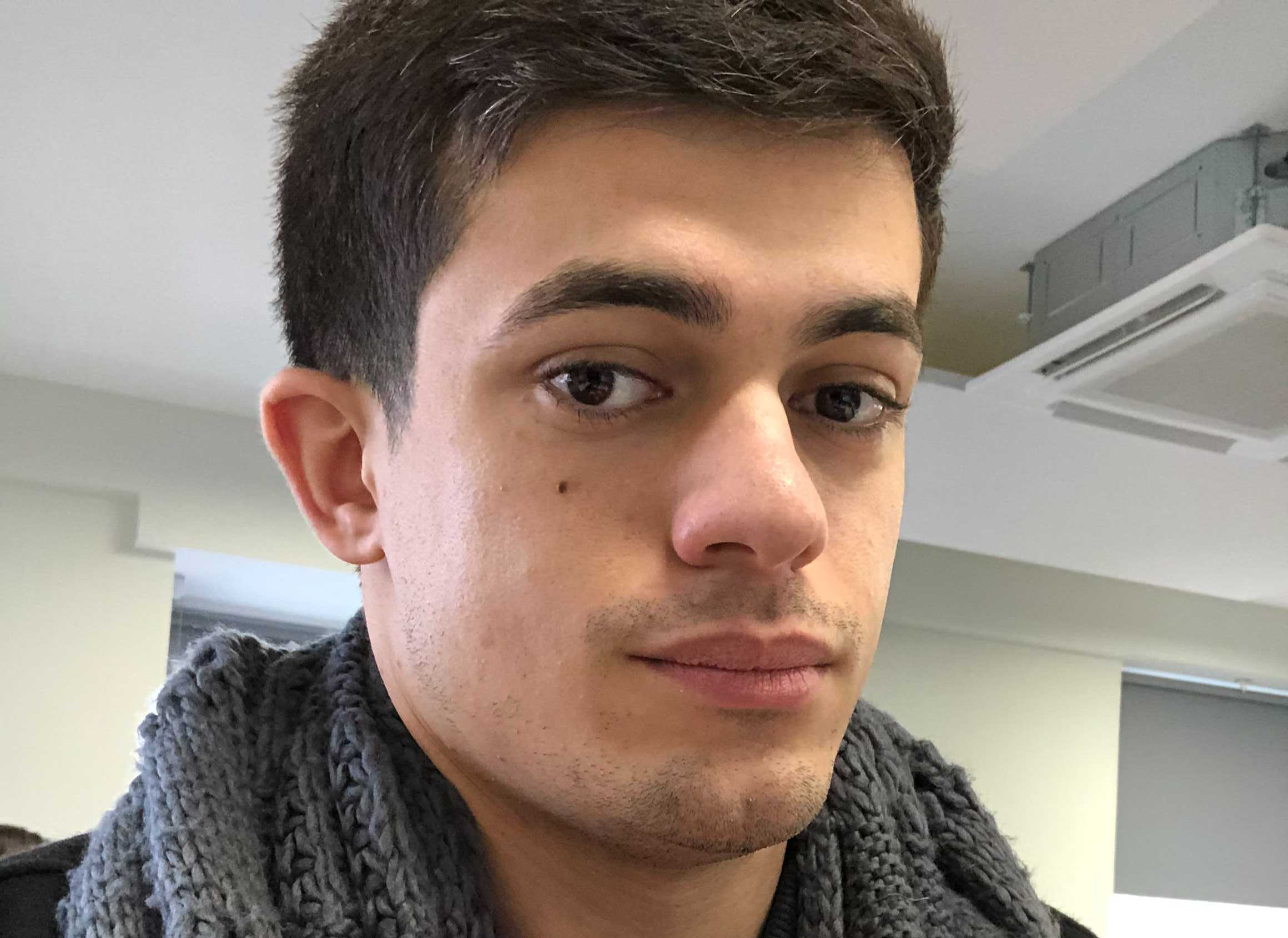GamesRadar+ Verdict
Like a Dragon: Infinite Wealth is a sublime RPG with a fantastic combat system, absorbing stories, and at-times fascinating story, if it wasn't let down by its drip-fed narrative nature and heavy nostalgic leanings
Pros
- +
Enthralling, intertwining stories
- +
A fun and fluid combat system
- +
Brilliant side stuff like Dondoko Island
Cons
- -
Stretched out story is easy to lose track of
- -
Kiryu's recollections can be outwardly nostalgic
Why you can trust GamesRadar+
Games can be scary big now, with tutorials still popping after you've hit the 30-hour mark, and reams of stuff thrown at you on repeat. This isn't a new revelation of course, but Like a Dragon: Infinite Wealth feels like it's truly basking in the runtime afforded to RPGs.
Then again, Like a Dragon: Infinite Wealth was always going to be a damn huge game because of its dual protagonists. This is Kazuma Kiryu's game as much as it is Ichiban Kasuga's – the former living on borrowed time as his body succumbs to cancer, while the latter is having a bit of a globe-trotting journey to Hawaii and back in search of his long-lost mother.
Release date: January 26, 2024
Platform(s): PC, PS5, PS4, Xbox Series X, Xbox One
Developer: Ryu Ga Gotoku Studio
Publisher: Sega
It's a fine story, more personal perhaps than 2020's Yakuza: Like a Dragon due to Ichiban's plot, but it's frustrating to see it suffer from the same problems as its predecessor. Like a Dragon: Infinite Wealth is a traditional 30-hour Yakuza story stretched over the body of a 100-hour RPG, so key story moments are almost drip-fed instead of chained together in significant beats. As a result, it isn't uncommon to entirely forget story beats and characters by the time Like a Dragon: Infinite Wealth eventually follows up on them. Some dialog even feels like it's geared to remind the player of certain events, just in case they're following it up hours later after grinding through other elements of this sprawling RPG.
Old haunts
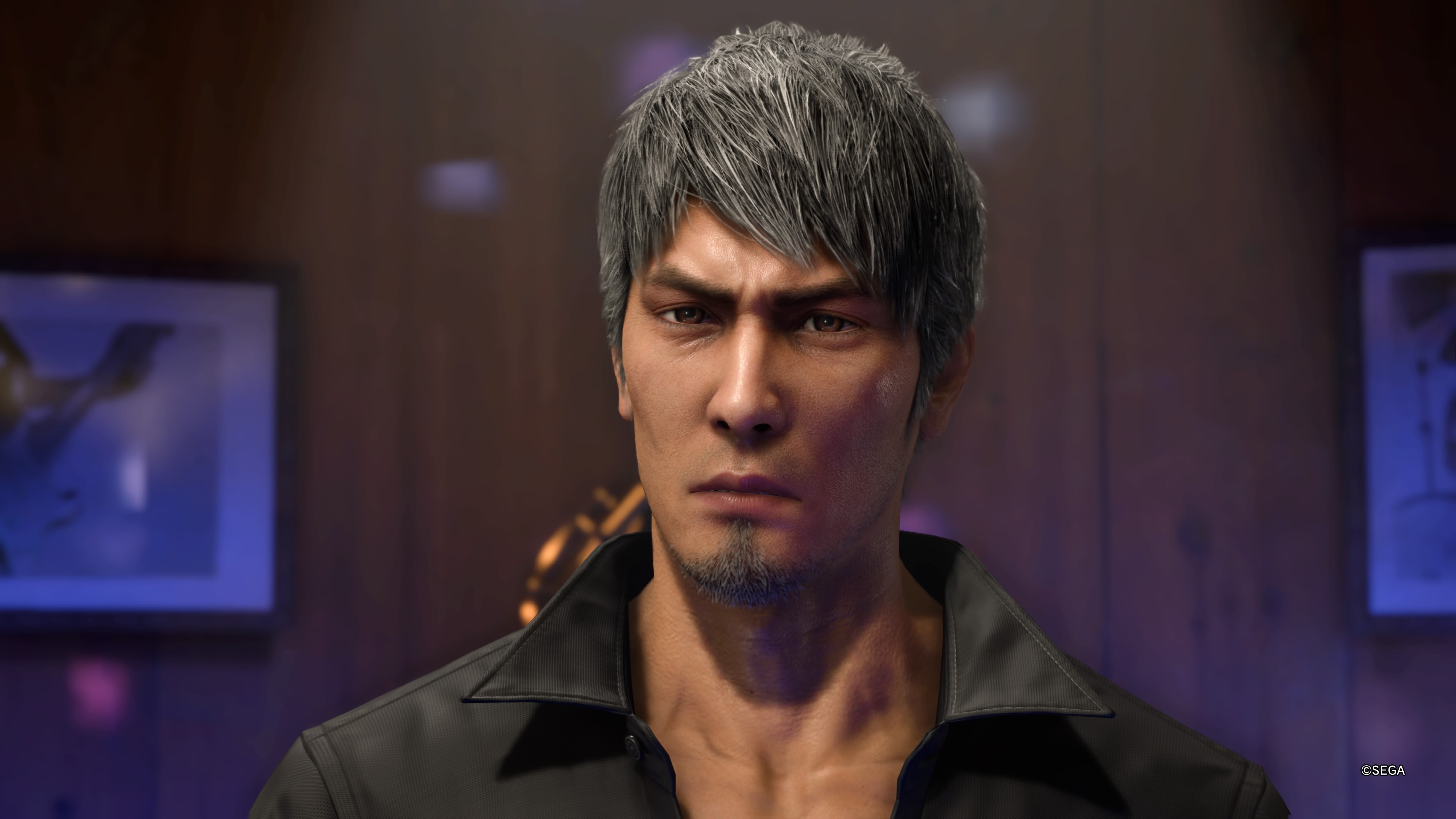
In many ways, Like a Dragon: Infinite Wealth feels like a victory lap for Kiryu – the once protagonist of the wider Yakuza franchise. The former brawler's half of the story partially focuses on Kiryu revisiting certain points around Kamurocho and Yokohama to recall memories from past Yakuza games. Infinite Wealth finds Kiryu having very much given up on life, as his once-herculean body crumbles under him, so regaling his adventures re-energizes him in body and mind.
It's a feature that oscillates between heartfelt and overly fan service-y. Hearing a wizened old Kiryu reflect on memories like meeting Haruka for the first time is utterly charming, and long-time Yakuza fans will be grinning as their own memories of the series resurface, but a critical view of the feature would be that Ryu Ga Gotoku Studio is deliberately playing up the nostalgia factor with Kiryu's memories. A critical view is, after all, warranted when Kiryu has been resurrected for yet another game after the developer deliberately went out of its way to craft Yakuza 6 as a farewell tale for the protagonist.
I'm honestly not sure which side of the argument I ultimately come down on. That's partly because divorcing my mind from media nostalgia these days is a near-impossible task, when popular properties like the Fresh Prince of Bel Air and Frasier are constantly being revived for audiences with little rhyme or reason. Perhaps Kiryu's memories don't deserve to be tarnished with the same critical brush, given how well executed certain elements of his story are executed here, but it’s still a worthwhile question to ponder given the context of his resurrection after Yakuza 6’s swansong.
Bruising brawlers
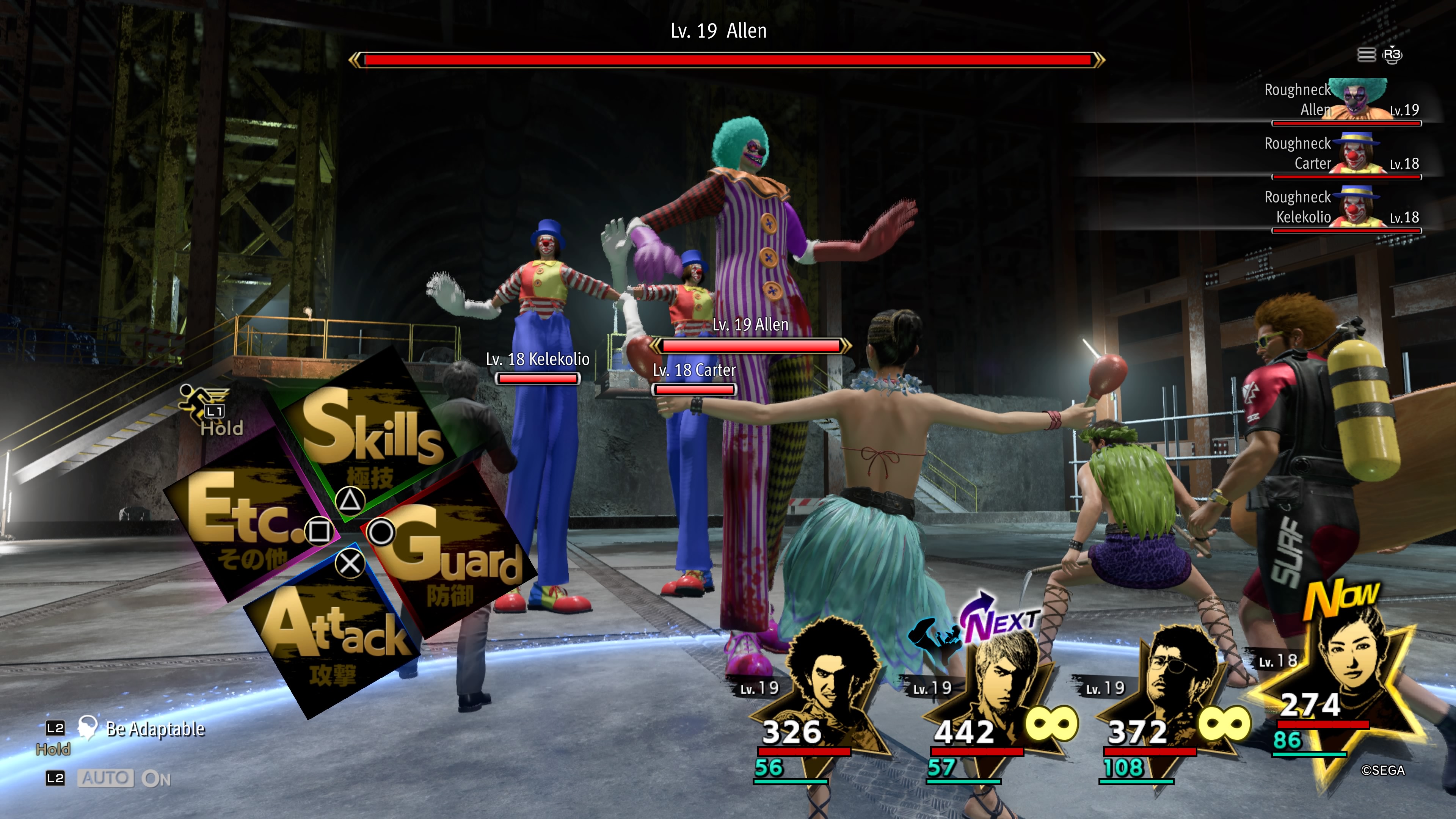
On the other hand, Like a Dragon: Infinite Wealth makes a smart connection between Kiryu's faltering body and its RPG stylings. We've seen Kiryu take on hordes of thugs single-handedly over the decades, but relying on party members like Nanba and Saeko is something he's never done before, and it's thrown in his face as a weakness by his foes. Infinite Wealth very cleverly brings Kiryu down to Earth as a turn-based fighter by feeding it into the cycles of story and combat.
Elsewhere though, everyone's having fun in the turn-based battles. Like a Dragon: Infinite Wealth lets its characters take on RPG Jobs as surfers, dancers, idols, pyromaniacs, assassins, and everything else in between. Each class has its own wacky abilities, like fire-breathing for the pyromaniac, and whipping up a mini tsunami as a surfer to pummel scores of enemies, in tricks that are guaranteed to leave a grin on your face.
You've even got to think about your physical positioning in the turn-based battles. If you can maneuver Ichiban behind an enemy for a strike, he'll send them falling to the ground, but if there's an ally like Adachi standing on the other side of the enemy, he'll follow up the initial attack by giving them a death-dealing strike. It's a really clever way of getting you to stop and think about where you're attacking from, instead of just raining down strike after strike relentlessly.

"Combat absolutely sings on every level, making each battle over dozens of hours feel fresh and exciting"
Items also factor into play, albeit in classic Yakuza style. If you can position someone near a bike before they attack, for example, they'll pick it up and effortlessly swing it around like they were the Dragon of Dojima themselves. It's fun ideas like this,, coupled with the returning Poundmates system of calling in eclectic allies like bodybuilder Chitose Buster Holmes or delivery driver Charlie, really make Like a Dragon: Infinite Wealth that much wilder – like it's brilliantly channeling the chaotic energy of the old-school Yakuza brawls.
Like a Dragon: Infinite Wealth's difficulty curve is mercifully much improved from Yakuza: Like a Dragon. Yes, there's points in the story where you might have to go and grind out a dungeon for a little bit before facing down a boss, but there's nothing as bad as the infamous Majima and Saejima-shaped mountain from the 2020 game. For the most part, it's a smooth grind atop a downright absorbing and enthralling RPG combat system.
Stories on the side
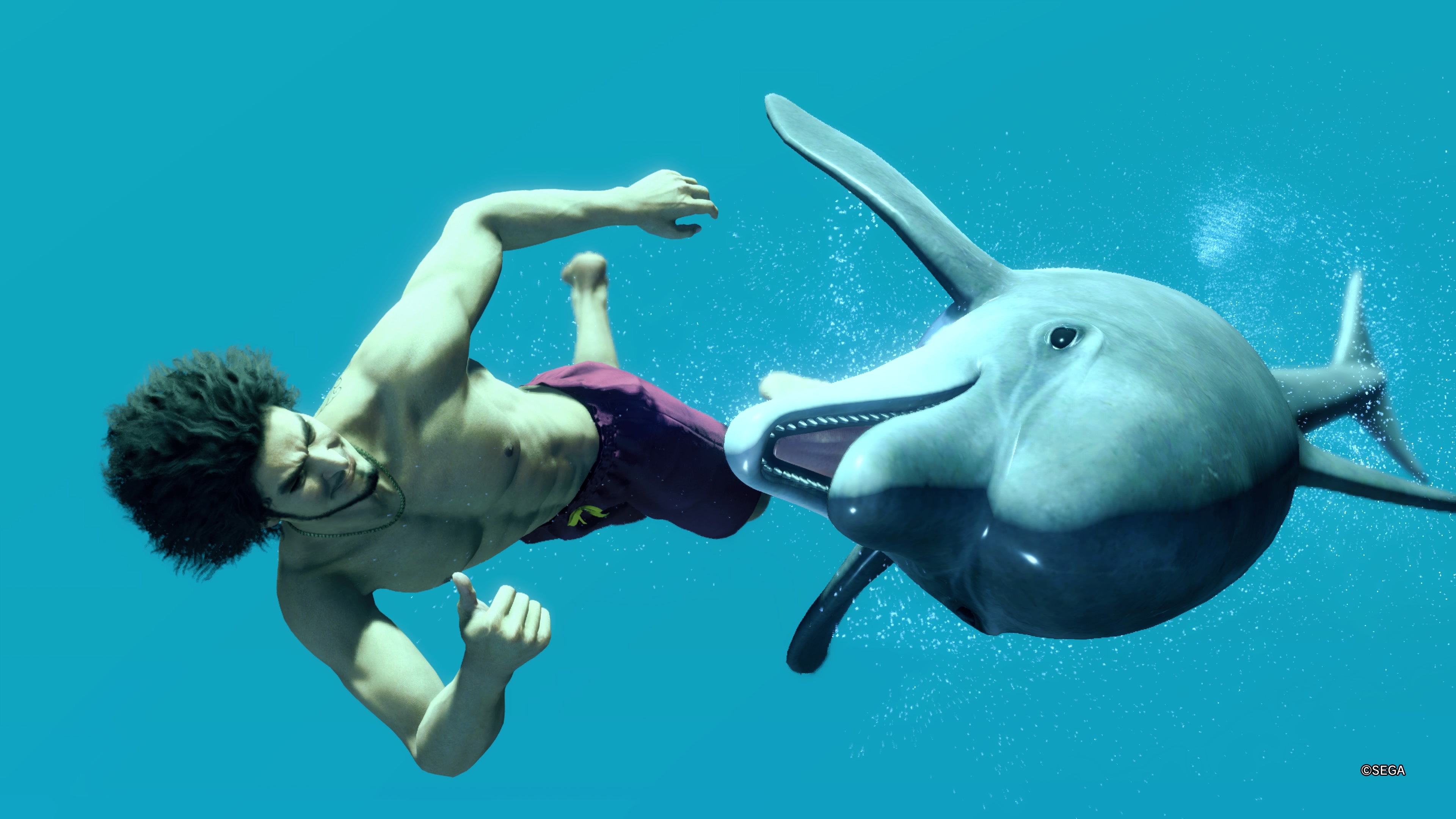
Like a Dragon: Infinite Wealth is huge, obviously, and a large part of that heft comes down to how developer Ryu Ga Gotoku Studio has chosen to pad out the rest of the game. The big new addition is Dondoko Island, Yakuza's take on Animal Crossing, where Ichiban needs to renovate a dilapidated island by clearing out trash and building lodgings, to restore said island to its former glory as a five-star holiday destination.
It's a seriously compelling mission, maybe the series' best side stuff since the cabaret club management sim in Yakuza Kiwami 2. Trotting around Dondoko Island and clearing out garbage, catching fish and bugs, and crafting furnishings like couches and entire buildings is something you can get lost in for dozens of hours, and it's all adorned with a lovely environmental message of looking after where you live.
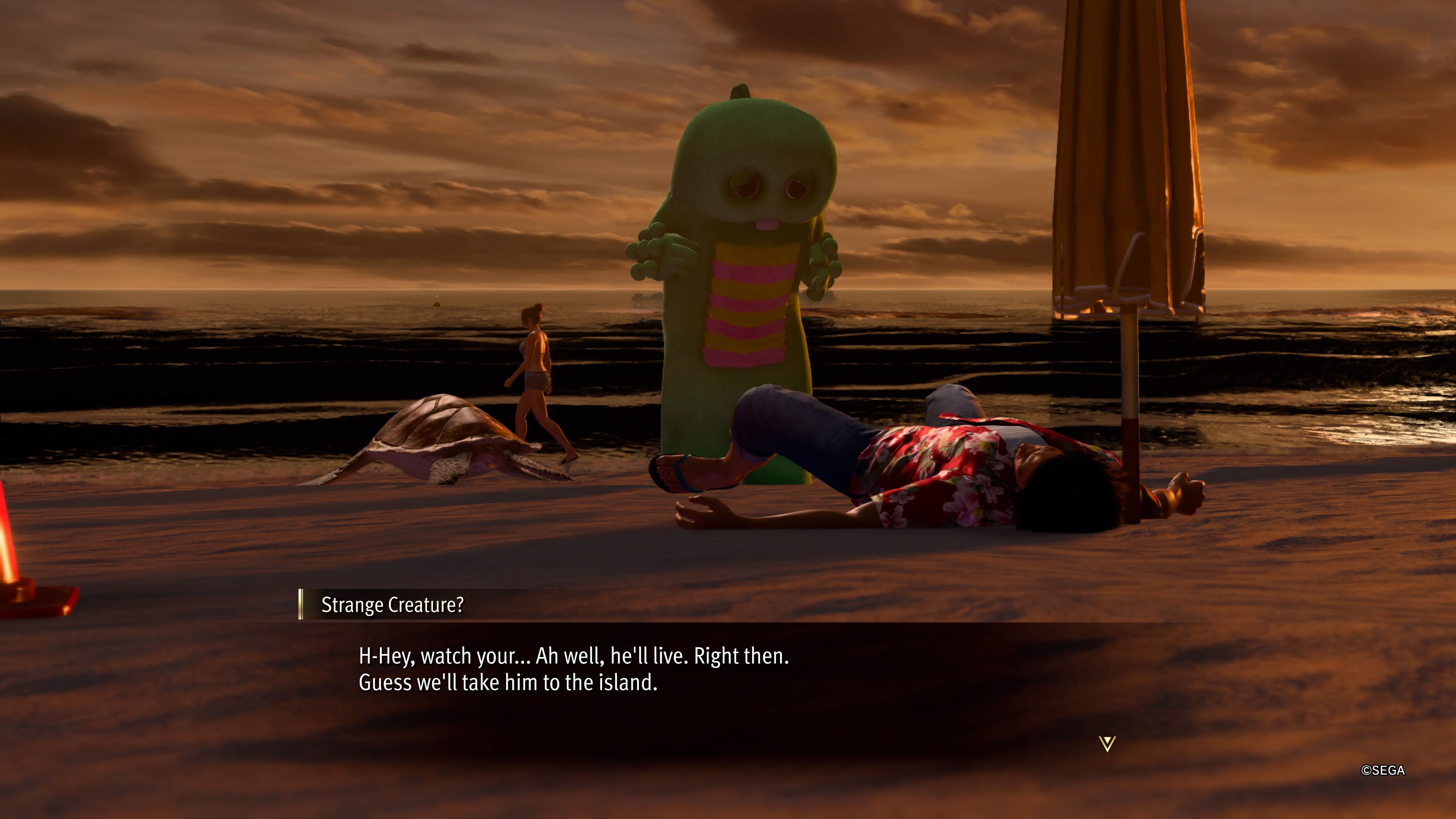
The Suijimon Dex, which might as well be called the pervert PokeDex, makes a triumphant return as another enthralling bit on the side. Now you can collect the weird enemies you fight, such as streakers and boxers, and form a Pokemon-like team with them to battle other foes' teams. The battles are still turn-based and basically come down to a rock, paper, scissors way of determining which Suijimon work well against others. Again, it's easy to get lost in battling other Suijimon trainers for hours on end, which makes the entire thing a brilliant companion to the lengthy main story of Like a Dragon: Infinite Wealth.
Like a Dragon: Infinite Wealth is one of the best RPGs I've played in years. Kiryu and Ichiban's intertwining stories make for a compelling tale, even if they are unnaturally stretched out over 100-odd hours. Combat absolutely sings on every level though, making each battle over dozens of hours feel fresh and exciting, while side stuff like Dondoko Island and the Suijimon League are perfect distractions with absorbing little missions. One could cast a skeptical gaze over Kiryu's nostalgic journey, but after all these games and decades later, perhaps he's earned it.
Disclaimer
Like a Dragon: Infinite Wealth was reviewed on PS5, with code provided by the publisher.
More info
| Genre | RPG |
Hirun Cryer is a freelance reporter and writer with Gamesradar+ based out of U.K. After earning a degree in American History specializing in journalism, cinema, literature, and history, he stepped into the games writing world, with a focus on shooters, indie games, and RPGs, and has since been the recipient of the MCV 30 Under 30 award for 2021. In his spare time he freelances with other outlets around the industry, practices Japanese, and enjoys contemporary manga and anime.
